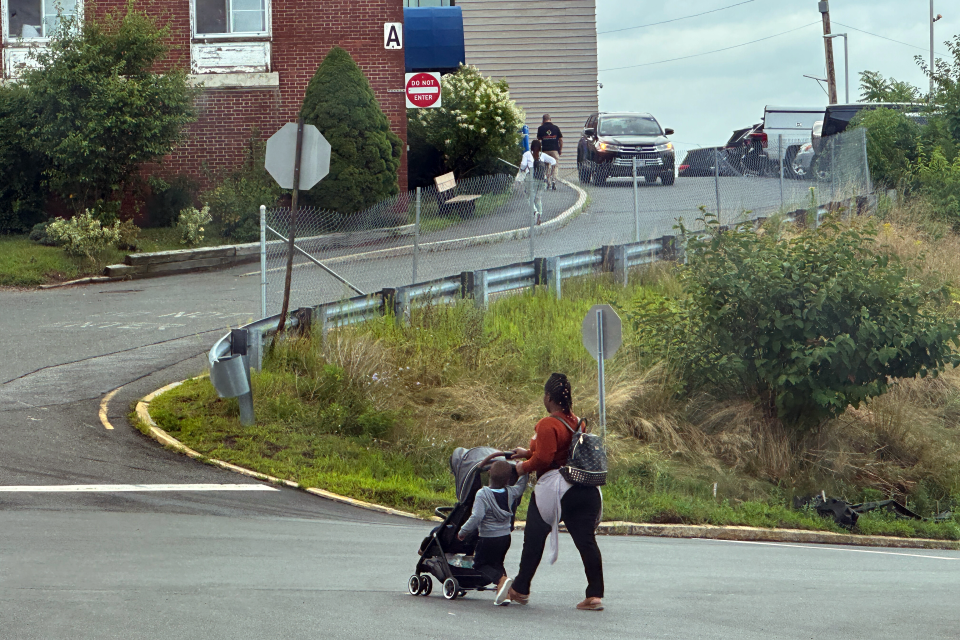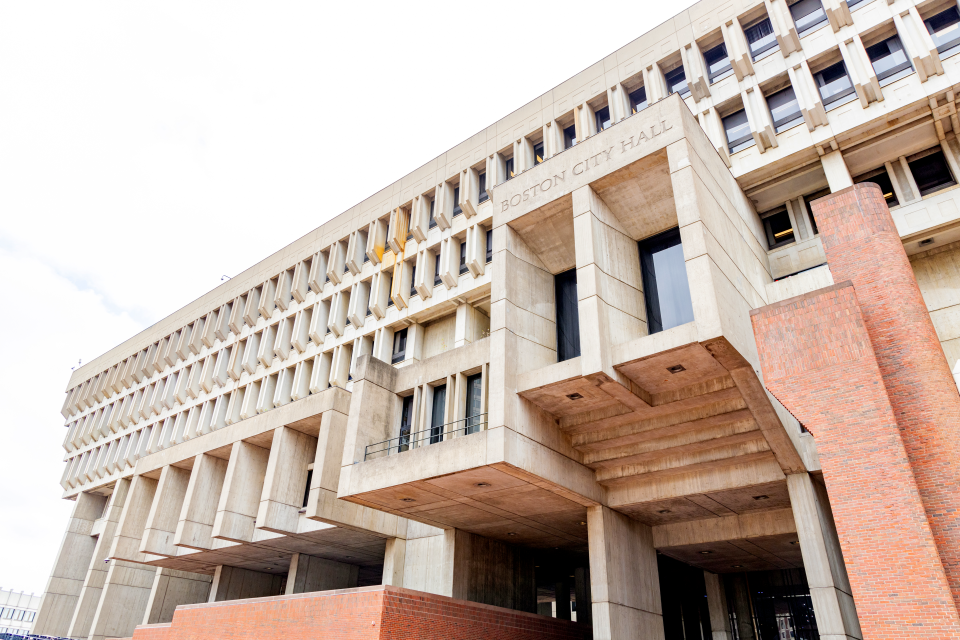At a workshop at the Norfolk Library last weekend, residents discussed issues and solutions surrounding the migrant crisis.
Emotions have been high in the months since Gov. Maura Healey’s administration announced plans to turn the former Bay State Correctional Facility into a temporary shelter. That decision surprised and frustrated town officials, prompted fears, and spurred hundreds of residents to action. The goal of the workshop was to promote a stronger response to challenges the community has experienced while hosting migrant families.
In an update on the Bay State migrant shelter, Norfolk resident and community activist Lucy Bullock-Sieger said program operator Heading Home is under pressure to help families quickly find other housing.
“Since August, they’ve had 63 families cycle through the shelter,” Bullock-Sieger said. “And we’ve found that all of them have received longer-term housing after.”
Since the shelter opened this past summer, nearly 250 families have stayed there, many of them migrants. Heading Home said the shelter has fluctuated between 50% and 65% capacity.
“[These families] are navigating extremely stressful situations. Our priority is to ensure that their basic needs are being met while we work with them to secure more permanent housing situations,” CEO Danielle Ferrier said.
Heading Home also operates several emergency assistance family shelters around Greater Boston. Ferrier said the organization “stands prepared to be a continued partner in this next phase” as the Healey administration implements new rules for the emergency shelter system.
The weekend workshop was hosted by Norfolk Strong, a community group created this summer by a local resident.
“She [the group’s founder] just thought she was going to get about ten people together to get some diapers and formula for the families that were moving into the shelter,” Bullock-Sieger recalled. “And turns out there’s 300 to 400 people in town that really care.”
The thrust of the conversation focused on how Norfolk, as a host community, can support people’s right to stay in their home country while advocating for their safety and shelter when they arrive here.
“One of the things I appreciated the most was the emphasis on focusing on human dignity,” said Norfolk resident Elizabeth Sucher. “I think people are trying to figure out how to deal with it no matter what side of the political fence they’re on.”
The workshop was cohosted by Cristosal, a United Nations recognized non-governmental organization that works in Central America.
For more than 20 years, Cristosal Executive Director Noah Bullock (Bullock-Sieger’s brother) has advocated for the most vulnerable of people in El Salvador, Guatemala and Honduras, with a mission to defend human rights and promote democratic rule of law in Central America.

He explained the historical context of migration, including internal displacement, policy approaches and protections.
“When an individual crosses an international border, they don’t cease to have human rights. Their responsibility to guaranteeing and protecting rights passes from the country of origin to the country of transit or destination,” Bullock said, referring to the responsibilities of all governments.
Throughout the workshop, the subject of a second Donald Trump administration and his agenda of “mass deportation” was raised a few times.
Bullock said Trump’s approach will lead to harsh treatment.
Resident Jack Oliveri of Norfolk, who organized protests against the opening of the Norfolk shelter, asked about why the U.S. doesn’t do a better job screening immigrants at the border and deciding who to allow entry.
“People are afraid because we don’t know who is coming across the border,“ he said.
Heading Home CEO Ferrier stressed that the organization, which has been around for about 50 years, will continue to operate within the system. She added that shelters are mostly supported by state funding, and Massachusetts law has enshrined families’ fundamental right to shelter. Heading Home also receives other types of support.
”We continue to see support in the form of community members and organizations who are volunteering,“ Ferrier said.
Kathy McAdams, rector of St. John’s Episcopal Church in Franklin, assists with the family shelter at a Best Western in Franklin, where dozens of families are living. She appreciated Bullock’s message of not allowing immigrants to be dehumanized.
“They’re escaping just horrible, horrible situations in their home countries,” McAdams said. “They wouldn’t be leaving if they didn’t have to. Nobody wants to leave their home.”
In closing the workshop, Bullock-Sieger and her brother emphasized that they’ll continue to hold workshops and work toward solutions.
“Immigration is a system, and every action into the system will generate a reaction,” Bullock said. “And so, the only way to diffuse that is recognizing the humanity of the people in those systems and finding opportunities for them to find peace and security.”








